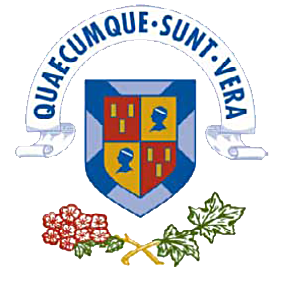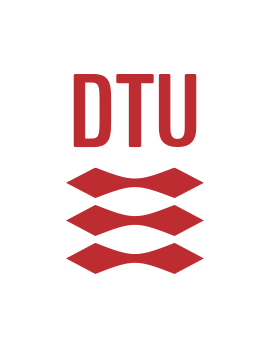|
Congress Keynotes |
|
Erol Gelenbe Institute of Theoretical & Applied Informatics
Polish Academy of Sciences, and
King’s College London, UK Abstract:
AI and Machine Learning (ML) have become important tools for evaluating the cybersecurity of computer networks and systems, with very large data sets that contain attack and benign network workload. At the same time AI is also used to optimize the allocation of workload and resources so as to improve overall quality of service and sustainability of Information and Communication Technologies (ICT). Indeed, AI Driven Cognitive Packet Networks exploit the Random Neural Network to optimize both the QoS, Security and Energy Consumption of Complex Edge Systems and Core Networks. However the Random Neural Network (RNN) is mathematically identical to Queueing Networks with Negative and Positive Customers, whose Product Form Solutions (PFS) are at the core of conventional performance optimization. Thus, in this talk we show how a single mathematical queueing network abstraction known as G-Networks is useful both for AI, and for conventional performance analysis. Bio: Prof. Erol Gelenbe FIEEE FACM FIFIP FAAIA, is a computer science researcher whose work spans the performance, security, and energy consumption of computer systems and networks. He is the inventor of mathematical models such as G-Networks and Random Neural Networks. His recent work includes the dynamic control of large scale self-aware computer systems and the Internet using Machine Learning and optimization algorithms. His role in EU funded research includes the coordination of the Horizon 2020 Projects NEMESYS and SerIoT on the cybersecurity of Mobile Networks and the Internet of Things (IoT). He is currently Principal Investigator in the Horizon 2020 Projects DOSS. Over the years, he has received numerous peer reviewed highly competitive research funding from CNRS, INRIA, NSF, ONR and ARO (USA), FNRS (Belgium), EPSRC and MoD (UK), and European Union ESPRIT, FP6, FP7 and Horizon Programs. According to the American Mathematical Society, Erol has graduated 95 PhDs in a career that spans leading institutions in France (University of Paris-Saclay, University Paris-Descartes), USA (Duke University), Belgium (University of Liege), UK (Imperial College) and currently Poland IITIS-PAN (Polish Academy of Sciences). Elected a Fellow of the Royal Academy of Sciences of Belgium, the French National Academy of Technologies, and the Science Academies of Hungary, Poland and Turkey, he has published over 300 papers and several books which are listed on google scholar. Nirwan Ansari New Jersey Institute of Technology, USA Abstract:
This talk examines the current status and future prospects of the metaverse, an emerging concept often heralded as the next phase of the internet. While not entirely new, given the long history of virtual and augmented reality, the metaverse's promise of an immersive, interconnected digital universe continues to generate significant interest and debate. This talk traces the evolution of the metaverse, from its origins in earlier virtual and augmented realities to its current form, integrating advanced technologies and next-generation networks. By exploring existing and potential applications, we assess the feasibility of creating experiences that seamlessly blend the virtual and tangible worlds. Bio: Nirwan Ansari, Distinguished Professor of Electrical and Computer Engineering at the New Jersey Institute of Technology (NJIT), holds a Ph.D. from Purdue University, an MSEE from the University of Michigan, and a BSEE (summa cum laude with a perfect GPA) from NJIT. He is a Life Fellow of the Institute of Electrical and Electronics Engineers (IEEE) and a Fellow of the National Academy of Inventors (NAI). Shiwen Mao Auburn University, USA Abstract:
The performance of deep learning (DL) empowered wireless communications, networking, and sensing depends on the availability of sufficient high-quality radio frequency (RF) data, which is more difficult and expensive to collect than other types. To overcome this obstacle, we proposal several AIGC approaches to generate synthetic RF data labeled with specified human activities for multiple wireless sensing platforms, such as WiFi, RFID, mmWave radar, including a conditional Recurrent Generative Adversarial Network (R-GAN) approach and diffusion model based approaches. The high quality of the generated RF data is validated by metrics of Structural Similarity Index (SSIM) and Frechet Inception Distance (FID), as well as representative downstream tasks of human activity recognition (HAR), where the model trained with sufficient synthesized data outperforms the model trained by real data. Bio: Shiwen Mao (S'99-M'04-SM'09-F'19) is a Professor and Earle C. Williams Eminent Scholar, and Director of the Wireless Engineering Research and Education Center at Auburn University. Dr. Mao's research interest includes wireless networks, multimedia communications, and smart grid. He is the editor-in-chief of IEEE Transactions on Cognitive Communications and Networking. He received the IEEE ComSoc MMTC Outstanding Researcher Award in 2023, the 2023 SEC Faculty Achievement Award for Auburn, the IEEE ComSoc TC-CSR Distinguished Technical Achievement Award in 2019, the Auburn University Creative Research & Scholarship Award in 2018, the NSF CAREER Award in 2010, and several service awards from IEEE ComSoc. He is a co-recipient of the 2022 Best Journal Paper Award of IEEE ComSoc eHealth Technical Committee, the 2021 Best Paper Award of Elsevier/KeAi Digital Communications and Networks Journal, the 2021 IEEE Internet of Things Journal Best Paper Award, the 2021 IEEE Communications Society Outstanding Paper Award, the IEEE Vehicular Technology Society 2020 Jack Neubauer Memorial Award, the 2018 Best Journal Paper Award and the 2017 Best Conference Paper Award from IEEE ComSoc MMTC, the 2004 IEEE Communications Society Leonard G. Abraham Prize in the Field of Communications Systems, and 10 IEEE best conference paper/demo awards.
Roman Beck IT University of Copenhagen, University of the Faroe lslands, and Halmstad University Abstract:
The way values are created, as well as what is considered as valuable, has changed, while theorizing about value creation and capture is still based on concepts and models going back to the industrial age. With the emergence of information technology, foremost the Internet, the creation and capture of value became possible in more or less virtual environments, where digital, non-physical forms of value became increasingly new forms of “hard” capital (sometimes also described as “from moving atoms to moving bytes”). Theorizing about the role of information technology as transformative force for value creation and capture focused is still based on existing concepts of goods and capital, as well as how they can be created by companies, disseminated on markets. Bio: Prof. Beck is a Full Professor at the Business IT Department and Head of the European Blockchain Center at ITU (www.ebcc.eu) and Affiliated Professor at the Faculty of Science and Technology at the University of the Faroe Islands. According to the German newspaper Wirtschaftswoche, Roman is among the top 2% of all German professors in business administration in terms of research output. He is also ranked among the top 1% of all information systems researchers in the world. As a blockchain economist, his research focuses on the changing nature of institutions due to blockchain with a focus on governance and value creation and capturing in decentralized systems. As a visiting scholar, he spent three months at CRITO, University of California at Irvine in 2003 and further two months at the School of Information, University of Michigan at Ann Arbor in 2004. In 2008, he was visiting professor at the CIS Robinson College of Business, Georgia State University at Atlanta for three months and spent another two months at NYU Stern in 2010. During his research sabbatical in 2012, he was a visiting fellow at the Australian National University in Canberra for three months.
|
Organizations:
 |
 |
 |
 |
|---|
Copyright@ Cybermatics 2024. Created and Maintained by Cybermatics 2024 Web Team.











